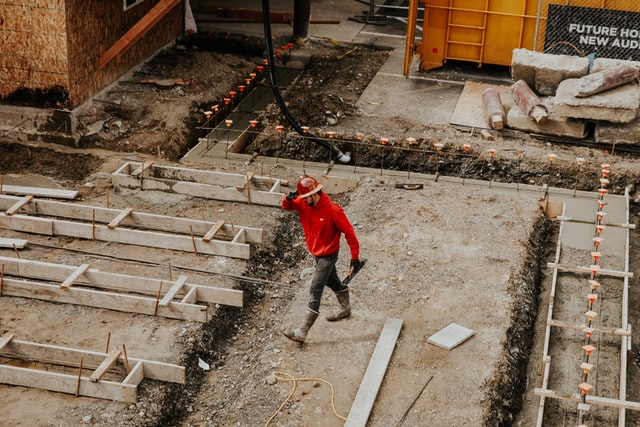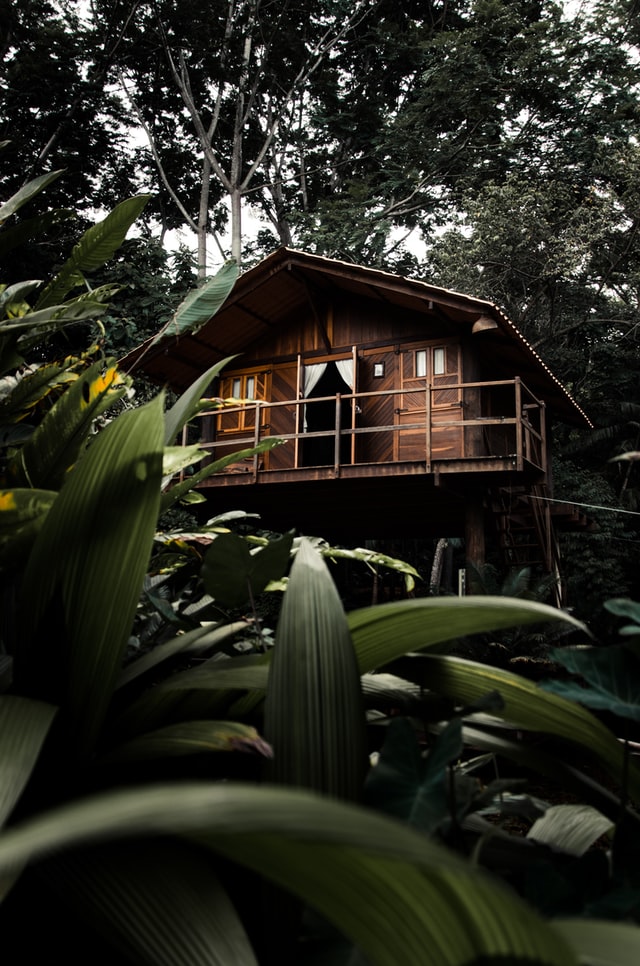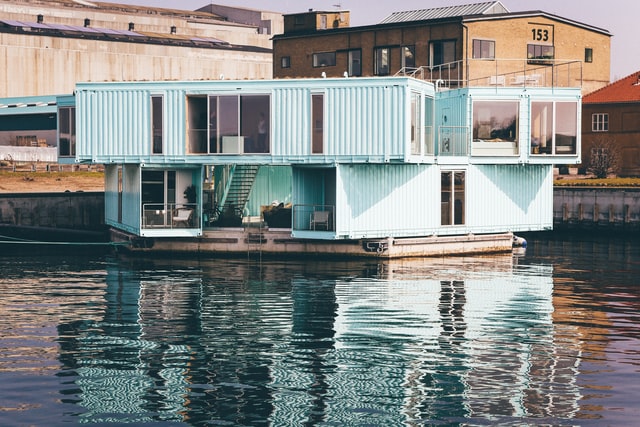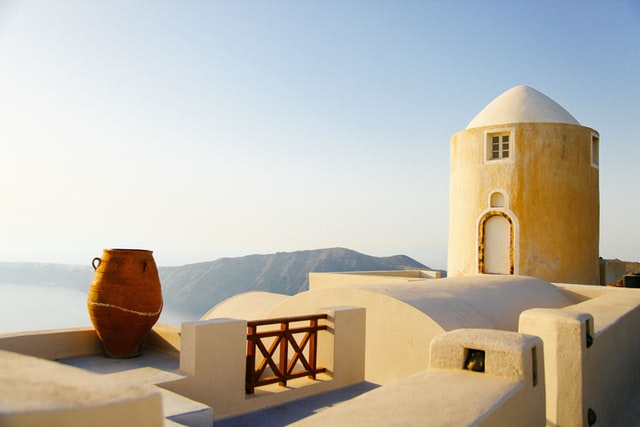
Materials
As part of the preparation for your house construction, the question of the construction method and materials arises very early on. You must also take precautions for special events in the context of house building. This includes the provision of dirty water pumps with the associated hoses. The delivery of tank containers for fuels required by construction vehicles and construction machinery on the construction site may also be necessary to ensure a rapid construction process. The path to the building plot should be marked so that suppliers can also find their way to the construction site. Fire protection should be considert when choosing construction materials as well.
Building Materials
Wood
The wood construction includes all parts that are used by means of the building material wood for the purpose of constructing of a residential building. The timber construction is the construction basis for most prefabricated houses. Depending on the purpose and construction technology, different designs for the wooden house have developed. The wooden house is prepared against extreme temperature fluctuations, against storms, even against earthquakes. The external appearance of the wooden house varies depending on the geographical location and wishes of the house builder. The simplest and most famous representative of the type wooden house is certainly the log house. These wooden houses are mostly built from uncut, peeled tree trunks. One of the most convincing advantages for the wooden house is certainly the ease of allergy. Usually no substances are produced in a wooden house that can lead to allergies. Wood is one of the few building materials whose used raw material grows back in full quantity within a human life.

Stone, Concrete
The construction method by means of masonry is the stone-to-stone method known in house construction for centuries, with the possible variants of the prefabricated construction method. The masonry consists of different-sized bricks, which are usually joined by a bricklayer with mortar to form a masonry bandage. This also includes the construction method with precast concrete parts
In addition to the use of concrete, mainly bricks. These bricks are classified as gas concrete stones, porous concrete stones, sand-lime bricks, polystyrene bricks, or brimstone according to their type of manufacture or their raw materials used. Since the supporting walls of the house also have to bear large loads inside, most interior walls are also made of solid materials. Due to the fact that the mineral substances in the masonry are particularly good heat conductors, the outer walls of a solid house are often additionally insulated in modern house construction by polystyrene or with mineral wool mats.

Steel, Metall
Is it really possible to build entirely out of steel? Yes, this is proven by various buildings, which are manufactured on the basis of freight containers. These in turn consist of a stainless steel structure. Residents do not have to do without luxury: By connecting several containers to a larger unit – even in height – a larger living space can be achieved as required.
Integrated window fronts allow light into the interior and from there it is hard to imagine that the outer shell was once a cargo container.
This construction method can be implemented relatively cost-effectively.

Clay
Clay houses are already described in the Bible. For thousands of years, clay construction has been part of our art of house building. Due to its versatility in application and its special properties, this non-toxic building material has secured a firm place in the use as clay house in our building culture. In the sunny areas of our earth, clay construction is still common in house building today. A decisive disadvantage for colder latitudes of the building material clay is that it is not waterproof. The clay regulates the humidity, as it can absorb humidity relatively quickly and releases it if necessary. As a result, it automatically regulates the humidity of the room air in the mud house and thus contributes to a healthy indoor climate. The medical advantages of this design result from a constant relative humidity of 45 to 55%. It contributes to the improvement of the living climate and to the storage of energy within the mud house by means of heat storage and in the case of passive use of solar energy.
